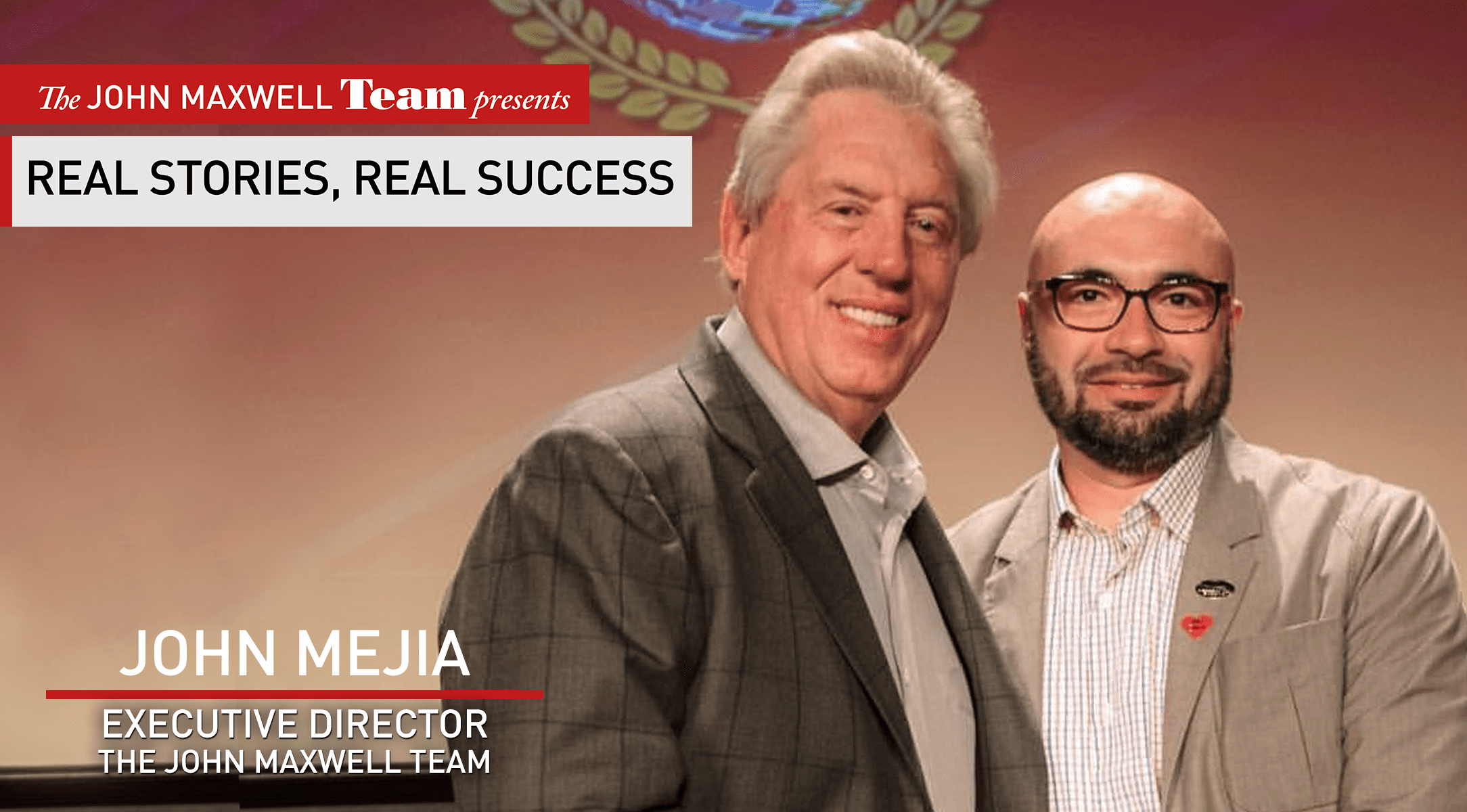Real Stories, Real Success:
How to Overcome Excuses and Put People First

For years, John Mejia found himself looking for leadership training and ways to improve himself. He went to seminar after seminar and left each one feeling energized, but it always ended a few days later.
He knew something was missing.
At that time, John was part of a network marketing company and saw John Maxwell speak at an event. Soon enough, he was speaking to a Program Coordinator, but said that he didn’t have the money to join the Team. His Program Coordinator helped him see that, with the skills he would learn with the John Maxwell Team, he could build his business and use that money to pay for his certification.
His PC was right. John began seeing results right away. “We put people first, then business,” he says. The other seminars he went to were putting business first, not building people.
That, he found, is what was missing.
In his time with the Team, John has become a member of the President’s Advisory Council and has become a Program Coordinator himself for the Spanish platform. Originally from Columbia, he was drawn to the PC role because “people in Latin America are looking for that close contact with John Maxwell. We finally have this bridge for them to come join the Team.”
Additionally, he decided, if a PC “opened the window for me to improve my capacity,” why not do the same for someone else?
Besides, John has been there! When speaking to a potential new member who is concerned about money, he knows the feeling!
As he learned from Paul Martinelli, people typically have two excuses generally related to their circumstances: money and skills. Well, the John Maxwell Team will teach you the skills you need to be successful, John emphasizes. He also knows first-hand that the money will come as you build your business with the skills learned as a member of the JMT.
But what about your situation? This, too, is something John believes the John Maxwell Team can help people overcome. “If you want to change your situation,” he says, “you have to change yourself.”
